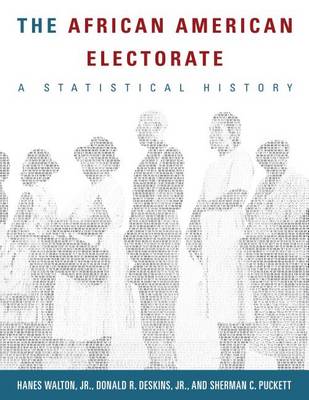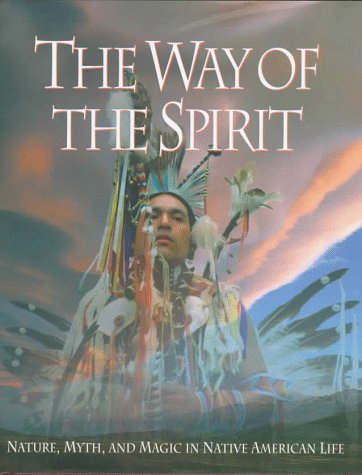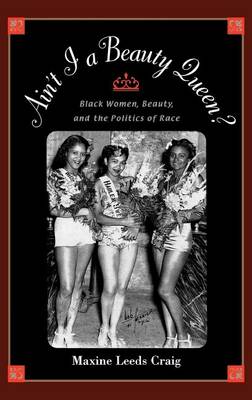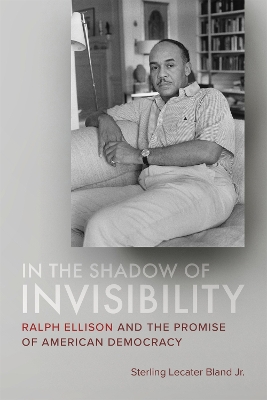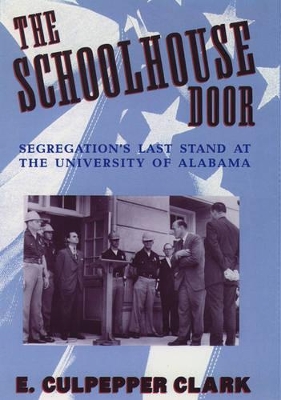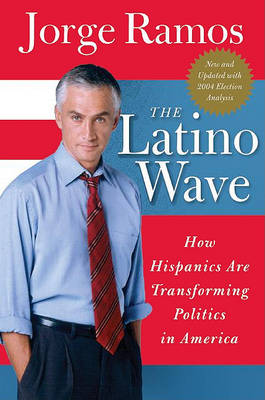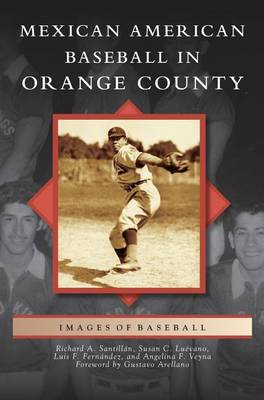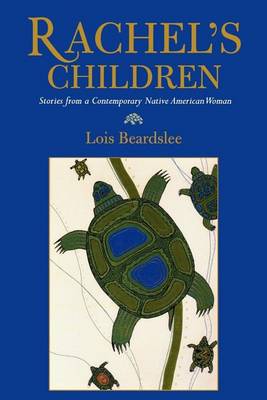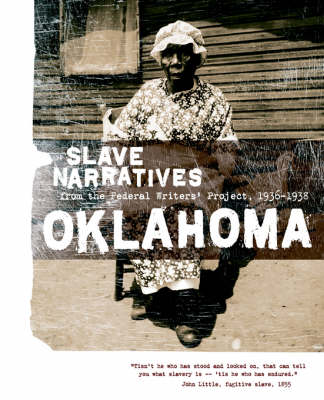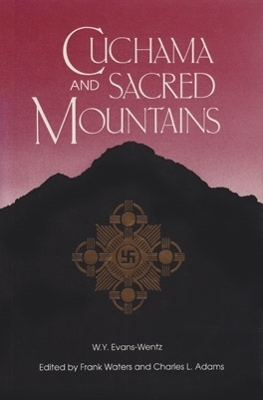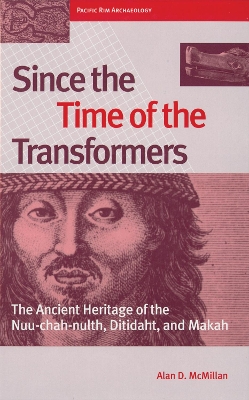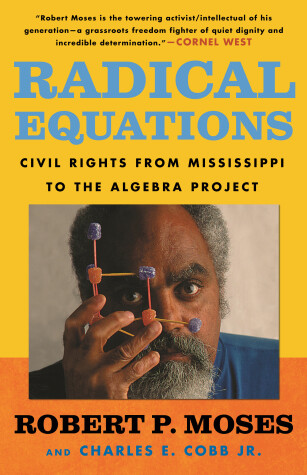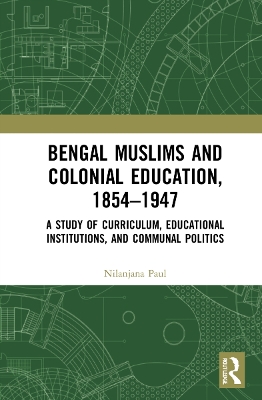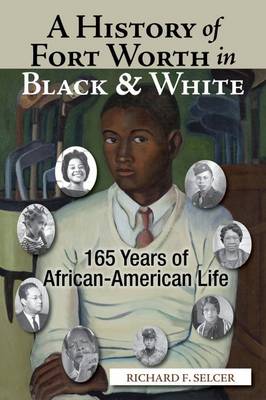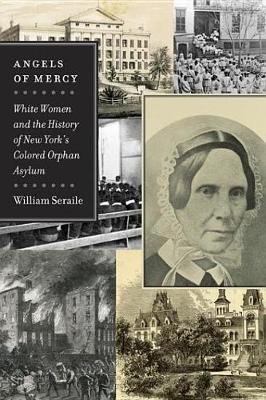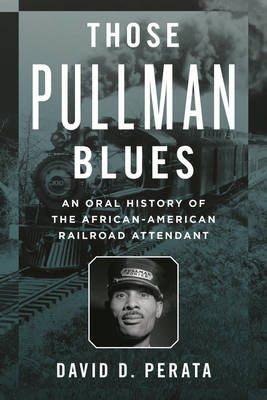In this provocative and passionate book, Dan Russell outlines the history of Aboriginal self-government in Canada. He compares it to that of the United States, where, for over 150 years, tribes have practised self-government -- domestic dependent nationhood. Russell provides specific examples of how those institutions of government operate, and eloquently explains, from an Aboriginal perspective, what his people hope to achieve through self-governing authority. After describing rights theory, Ru...
The African American Electorate
by Hanes Walton, Sherman C. Puckett, and Donald R. Deskins, Jr.
This pioneering work brings together for the first time in a single reference work all of the extant, fugitive, and recently discovered registration data on African American voters from Colonial America to the present. It features election returns for African American presidential, senatorial, congressional, and gubernatorial candidates over time. Rich, insightful narrative explains the data and traces the history of the laws dealing with the enfranchisement and disenfranchisement of African Ame...
Ain't I a Beauty Queen?: Black Women, Beauty, and the Politics of Race
by Maxine Craig
With In the Shadow of Invisibility, Sterling Lecater Bland Jr. offers a long-overdue reconsideration of Ralph Ellison, examining the trajectory of his intellectual thought in relation to its resonances in twenty-first-century American culture. Bland charts Ellison's evolving attitudes on several central topics including democracy, race, identity, social community, place, and political expression. This compelling new exploration of Ellison's legacy stresses the perpetual need to reexamine the int...
On June 11, 1963, in a dramatic gesture that caught the nation's attention, Governor George Wallace physically blocked the entrance to Foster Auditorium on the University of Alabama's campus. His intent was to defy Attorney General Nicholas Katzenbach, sent on behalf of the Kennedy administration to force Alabama to accept court-ordered desegregation. After a tense confrontation, President Kennedy federalized the Alabama National Guard and Wallace backed down, allowing Vivian Malone and James Ho...
Journal of American Indian Education 55.1
Founded in 1961, the Journal of American Indian Education (JAIE) features original scholarship on educational issues of American Indians, Alaska Natives, Native Hawaiians, and Indigenous peoples worldwide, including First Nations, Maori, Aboriginal/Torres Strait Islander peoples, and Indigenous peoples of Latin America, Scandinavia, Africa, and others.
With a population of 40 million and growing, the United States witnessed Latinos becoming the largest minority in America in 2003--creating a voting bloc with the potential to determine the outcome of elections throughout the nation. In The Latino Wave, award-winning journalist Jorge Ramos argues that the political party that can correctly understand the wants and needs of Hispanics will triumph at the polls. Ramos deftly clarifies these points, among many others, and explains why it's necessa...
Journal of American Indian Education 57.2
Mexican American Baseball in Orange County
by Richard A Santillan, Susan C Luevano, and Luis F Fernandez
Rachel's Children (Contemporary Native American Communities, #12)
by Steve Beard
Rachel's Children is a true story, based on real events. It is an engaging and humorous account of a contemporary Ojibwa household and the woman and her children who are at its core. As their lives unfold, we understand how traditional beliefs and oral history help Rachel and her family cope as they encounter racism and educational discrimination in rural northern Michigan. When a white educator arrives in Rachel's household to learn about "Indians," she discovers the harsh reality of backwoods...
W. Y. Evans-Wentz, great Buddhist scholar and translator of such now familiar works as the Tibetan Book of the Dead and the Tibetan Book of the Great Liberation, spent his final years in California. There, in the shadow of Cuchama, one of the Earth's holiest mountains, he began to explore the astonishing parallels between the spiritual teaching of America's native peoples and that of the deeply mystical Hindus and Tibetans. Cuchama and Sacred Mountains, a book completed shortly before his death...
Since the Time of the Transformers (Pacific Rim Archaeology)
by Alan D. McMillan
This book examines over 4000 years of culture history of the related Nuu-chah-nulth, Ditidaht, and Makah peoples on western Vancouver Island and the Olympic Peninsula. Using data from the Toquaht Archaeological Project, McMillan challenges current ethnographic interpretations that show little or no change in these peoples' culture. Instead, by combining historical evidence, recent archaeological data, and oral traditions he demonstrates conclusively that there were in fact extensive cultural cha...
Aboriginal Peoples and Forest Lands in Canada
Aboriginal people in Canada have long struggled to regain control over their traditional forest lands. Aboriginal Peoples and Forest Lands in Canada brings together the diverse perspectives of Aboriginal and non-Aboriginal scholars to address the political, cultural, environmental, and economic implications of forest use. This book discusses the need for professionals working in forestry and conservation to understand the context of Aboriginal participation in resource management. It also addres...
The remarkable story of the Algebra Project, a community-based effort to develop math-science literacy in disadvantaged schools—as told by the program’s founder “Bob Moses was a hero of mine. His quiet confidence helped shape the civil rights movement, and he inspired generations of young people looking to make a difference”—Barack Obama At a time when popular solutions to the educational plight of poor children of color are imposed from the outside—national standards, high-stakes tests, char...
This book examines the impact of British education policies on the Muslims of Colonial Bengal. It evaluates the student composition and curriculum of various educational institutions for Muslims in Calcutta and Dacca to show how they produced the educated Muslim middle class. The author studies the role of Muslim leaders such as Abdul Latif and Fazlul Huq in the spread of education among Muslims and looks at how segregation in education supported by the British fueled Muslim anxiety and separati...
This volume fills a long-empty niche on the Fort Worth bookshelf: a scholarly history of the city's black community that starts at the beginning with Ripley Arnold and the early settlers, and comes down to today with our current battles over education, housing, and representation in city affairs. Profiles on some noted and some not-so-noted African Americans will appeal to both schools and general readers. Using a wealth of primary sources, Richard Selcer dispels several enduring myths, for ins...
William Seraile uncovers the history of the colored orphan asylum, founded in New York City in 1836 as the nation's first orphanage for African American children. It is a remarkable institution that is still in the forefront aiding children. Although no longer an orphanage, in its current incarnation as Harlem-Dowling West Side Center for Children and Family Services it maintains the principles of the women who organized it nearly 200 years ago. The agency weathered three wars, two major financi...
The first oral history centering on the unique experiences of black porters and railroad attendants during the railroad's heyday is by turns dramatic, inspiring, comic, and heartwrenching. First person accounts document both the glamour of the railroad era and the bitter realities of being a black worker on a white railroad.

